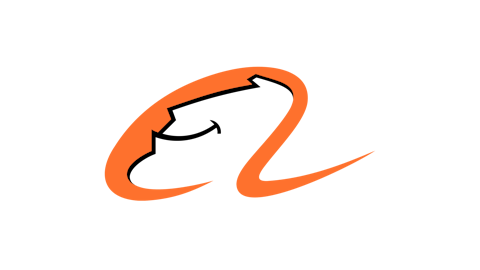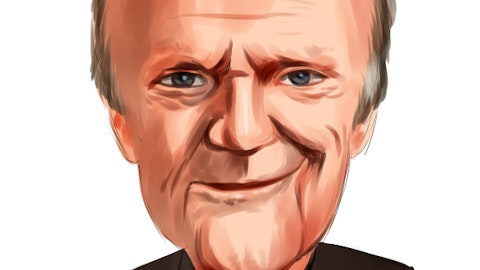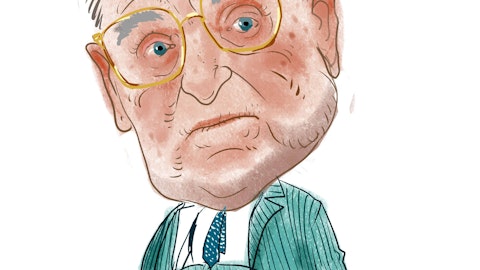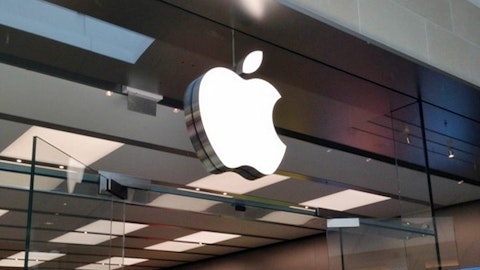Billionaire George Soros’ Soros Fund Management has filed a 13G disclosing an increase of its stake in Cypress Semiconductor Corporation (NASDAQ:CY) by 4.45 million shares to 17.67 million shares. Following the increase, the investor’s stake amasses 5.32% of the company’s outstanding common stock.
Cypress Semiconductor Corporation (NASDAQ:CY) is an American semiconductor design and manufacturing company that delivers high-performance, high-quality solutions at the heart of today’s most advanced embedded systems, from automotive, industrial and networking platforms to highly interactive consumer and mobile devices. The shares of Cypress have dropped by over 17% since the beginning of the current year and it seems that the stock have already hit its bottom. Cypress has been involved in months-long bidding war attempting to acquire the chip maker Integrated Silicon Solution (NASDAQ:ISSI), but failed to secure this deal. Although Cypress intended to strengthen its positon in the automotive chip market through this acquisition and failed in doing so, the company remains competitive in capitalizing on automotive trends. The revenues generated from the industrial and automotive segment represented 51% of the company’s total first-quarter revenues, which indicates that Cypress is successfully moving away from the mobile market towards other industries. As stated by our database, Matthew Sidman’s Three Bays Capital represents the second largest investor in Cypress Semiconductor Corporation (NASDAQ:CY) with 8.23 million shares.
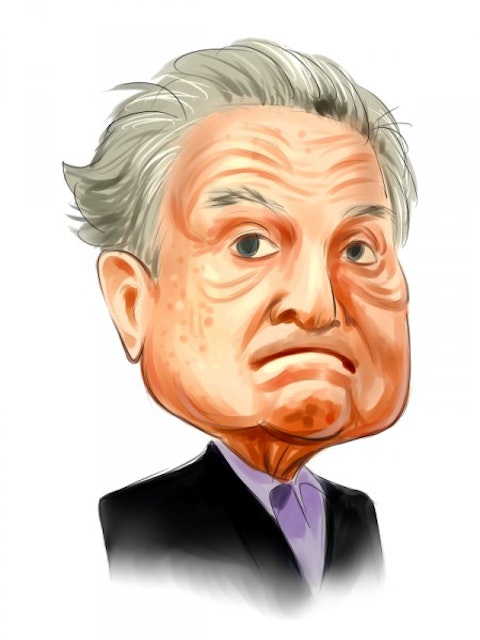
Soros Fund Management is a privately held investment management firm established by George Soros, one of the world’s best known hedge fund managers, in 1969. George Soros, famous for “breaking the Bank of England”, announced his retirement at the end of 2011 and does not participate in the daily operations of the fund, but still remains involved in the fund’s decisions and bets. Soros Fund Management is currently managed by its Chief Investment Officer, Scott Bessent, who seems to perfectly replicate Soros’ moves with the short bet on the yen at the beginning of 2013. Soros Fund Management is considered one of the most profitable firms in the hedge fund industry, generating an average annualized return of 20% since its inception until 2010.
Soros Fund Management’s flagship fund, the Quantum fund, delivered the strongest return among its peers in 2013 and its best return since 2009, collecting around $5.5 billion from its return of roughly 22%. However, Soros Fund Management struggled to deliver best-in-class returns during the second quarter of this year. However, the fund’s 156 long positions in stocks with a market capitalization of over $1 billion returned negative 2.2% during the quarter, yielding a return of 1.7% year-to-date. Among the largest holdings that contributed to this performance are Soros’ stakes in Alibaba Group Holding Limited (NYSE:BABA), The Dow Chemical Company (NYSE:DOW) and Endo International plc (NASDAQ:ENDP).
Follow George Soros's Soros Fund Management
We don’t just track the latest moves of hedge funds. We are, in fact, more interested in their 13F filings, which we use to determine the top 15 small-cap stocks held by the funds we track. We gather and share this information based on 16 years of research which showed that these 15 most popular small-cap picks have a great potential to outperform the market, beating the S&P 500 Total Return Index by nearly one percentage point per month in backtests, and easily beating the most popular large-cap picks of funds, which nonetheless get the majority of their collective capital. Why pay fees to invest in both the best and worst ideas of a particular hedge fund when you can simply mimic only the very best ideas of the best fund managers on your own? Since the beginning of forward testing in August 2012, the Insider Monkey small-cap strategy has outperformed the market every year, returning 135%, beating the S&P 500 ETF (SPY) by around 2.5 times (see more details).
